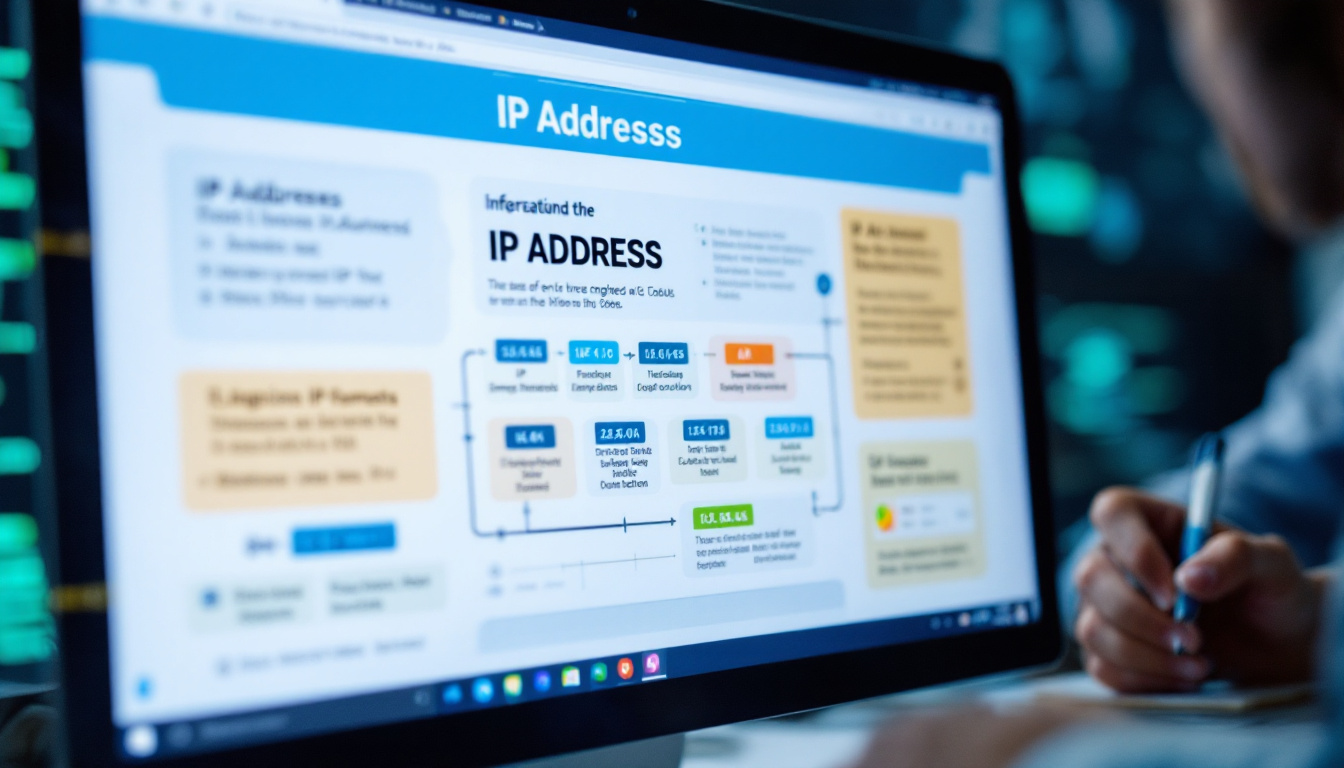What is anonymous IP identification?
The concept of anonymous IP identification is a critical aspect of digital marketing, cybersecurity, and online privacy. This term refers to the process of identifying an internet protocol (IP) address that is being used anonymously, often with the intent of hiding the user’s true identity or location. This process is crucial in a variety of contexts, from preventing fraudulent activities to understanding user behavior in digital marketing.
Understanding anonymous IP identification requires a grasp of several key concepts, including the nature of IP addresses, the reasons for using anonymous IPs, and the techniques used to identify them. This article aims to provide a comprehensive overview of these topics, offering a detailed insight into the world of anonymous IP identification.
Understanding IP Addresses
An Internet Protocol (IP) address is a unique identifier assigned to each device connected to a computer network that uses the Internet Protocol for communication. These addresses serve two main purposes: identifying the host or network interface, and providing the location of the host in the network.

IP addresses can be either static or dynamic. Static IP addresses remain the same over time, while dynamic IP addresses change each time the device connects to the network. Dynamic IP addresses are commonly used for residential internet connections, while static IP addresses are often used for hosting websites or other online services.
Types of IP Addresses
There are two types of IP addresses: IPv4 and IPv6. IPv4, which stands for Internet Protocol version 4, is the most widely used type. It uses a 32-bit address space, which allows for a total of approximately 4.3 billion addresses. However, due to the rapid growth of the internet, this number is insufficient, leading to the development of IPv6.
IPv6, or Internet Protocol version 6, uses a 128-bit address space, providing a virtually unlimited number of addresses. This type of IP address is gradually being adopted across the internet, but the transition is slow due to the significant changes required in network infrastructure.
What is Anonymous IP?
An anonymous IP is an IP address that is not directly associated with a specific user or device. This can be achieved through various methods, such as using a proxy server, a virtual private network (VPN), or the Tor network. The primary purpose of using an anonymous IP is to maintain privacy and security online.

Anonymous IPs are often used to hide a user’s true location, protect against tracking or surveillance, bypass geographic content restrictions, or engage in activities that require a certain level of anonymity, such as whistleblowing or investigative journalism. However, they can also be used for malicious purposes, such as cybercrime or online harassment.
Methods of Achieving Anonymous IP
There are several methods to achieve an anonymous IP, each with its own advantages and disadvantages. One common method is using a proxy server, which acts as an intermediary between the user’s device and the internet. The user’s internet traffic is routed through the proxy server, which masks the user’s true IP address.
Another method is using a virtual private network (VPN), which creates a secure, encrypted connection between the user’s device and a server located elsewhere. This not only hides the user’s IP address but also encrypts their internet traffic, providing additional security.
Anonymous IP Identification
Anonymous IP identification refers to the process of identifying an anonymous IP address. This can be a challenging task due to the nature of anonymous IPs. However, it is often necessary for various reasons, such as preventing fraud, enforcing content restrictions, or conducting digital marketing research.
There are several methods used to identify anonymous IPs, ranging from simple IP lookup tools to more complex techniques involving machine learning and big data analysis. The effectiveness of these methods can vary greatly depending on the specific circumstances.
Methods of Anonymous IP Identification
One common method of anonymous IP identification is using an IP lookup tool. These tools can provide information about the IP address, such as the internet service provider (ISP), the approximate geographic location, and whether the IP address is associated with a proxy or VPN.
More advanced methods involve the use of machine learning algorithms and big data analysis. These techniques can identify patterns and anomalies in internet traffic that may indicate the use of an anonymous IP. For example, if a large number of requests are coming from a single IP address in a short period of time, it may indicate the use of a proxy or VPN.
Applications of Anonymous IP Identification
There are numerous applications for anonymous IP identification, particularly in the fields of cybersecurity and digital marketing. In cybersecurity, identifying anonymous IPs can help detect and prevent malicious activities, such as hacking, phishing, and distributed denial-of-service (DDoS) attacks.
In digital marketing, anonymous IP identification can provide valuable insights into user behavior. For example, it can help identify the geographic location of website visitors, even if they are using a VPN or proxy. This information can be used to tailor marketing strategies to specific regions or demographics.
Challenges and Ethical Considerations
While anonymous IP identification has many practical applications, it also presents several challenges and ethical considerations. One of the main challenges is the technical difficulty of accurately identifying anonymous IPs. This task requires advanced technical skills and resources, and even then, it is not always possible to identify an anonymous IP with certainty.
From an ethical perspective, anonymous IP identification raises questions about privacy and surveillance. While it can be used for legitimate purposes, such as preventing fraud or understanding user behavior, it can also be used for invasive or unethical purposes, such as tracking or spying on individuals without their consent.
Conclusion
Anonymous IP identification is a complex and multifaceted topic, with implications in many areas of digital technology. While it presents significant challenges, both technical and ethical, it also offers valuable insights and tools for understanding and navigating the digital world.

As the internet continues to evolve, the importance of understanding concepts like anonymous IP identification will only increase. Whether you are a digital marketer, a cybersecurity professional, or simply an internet user interested in privacy and security, gaining a deeper understanding of this topic can be highly beneficial.
